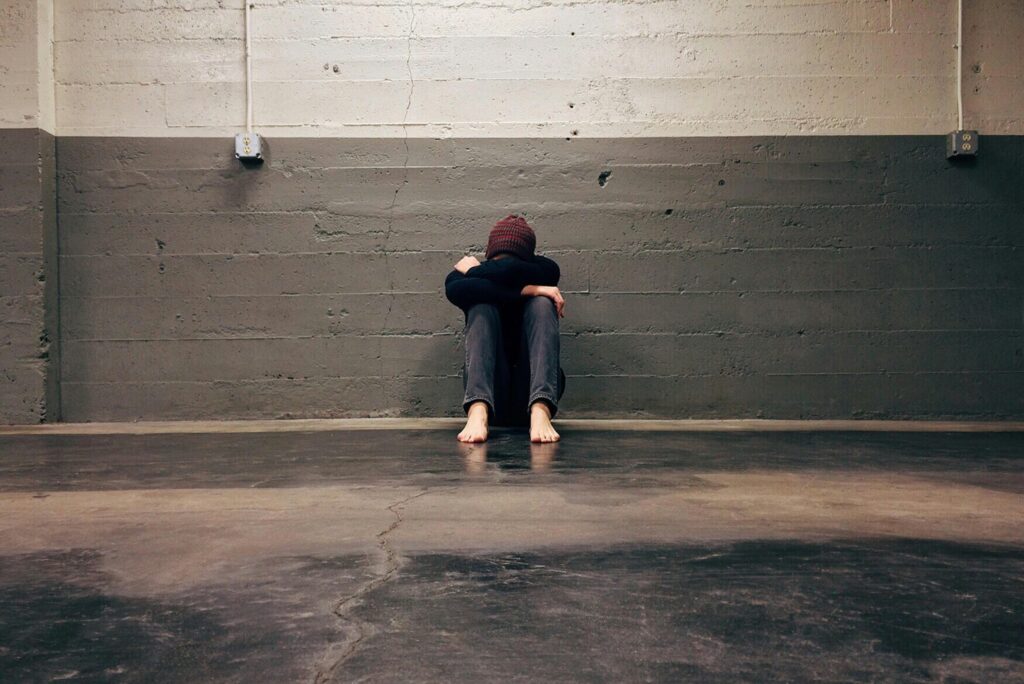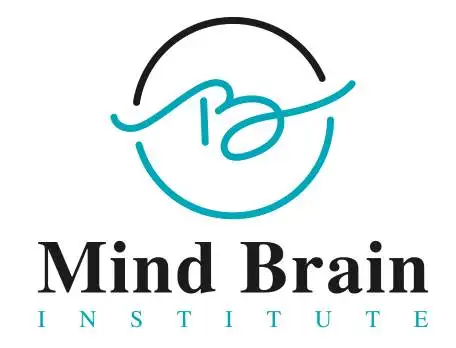- Posted By Dr. Anuranjan Bist
- Comments 0
What Are the Primary Causes of Depression?
Imagine a young professional with everything “going right” in life, a successful career, a great family, financial stability, and he is still feeling sad, hollow, and drained. This is not unusual. The World Health Organization reports that more than 330 million people on the planet suffer from depression, which makes it one of the top causes of disability globally.
When individuals are depressed, two questions haunt them:
- “Why me?”
- “Where did this happen from?”
Being aware of the top causes of depression is important because it does two good things:
- It prevents self-blame: Depression is not weakness; it’s an affected state caused by multifaceted reasons.
- It directs treatment: Whether the cause is biological, psychological, or social, the knowledge of “why” allows clinicians and patients to select the “how.”
Let’s break down the main causes of depression into biological, psychological, social, and lifestyle factors so you can find out more about what might be happening in your life.

Biological Causes of Depression
Your body plays a big role in your mood. Biological causes have the potential to set depression in motion, which tends to work as unseen strings pulling in and out of your body and brain.
Genetics and Family History
If the parent or a sibling has struggled with depression, your risk could be greater. Research, conducted by Stanford Medicine, indicates that genetics contributes to about 40–50% of the risk for depression. But here is the catch: genetics isn’t destiny. As it’s been said, “Genetics loads the gun, but the environment pulls the trigger.” A hereditary family history of depression indicates your brain may be more vulnerable to stress, but support and lifestyle can change that.
Brain Chemistry Imbalances
Your brain relies on neurotransmitters, chemicals like serotonin, dopamine, and norepinephrine, to regulate mood. When they’re out of whack, depression gains the upper hand:
- Low levels of serotonin have been linked with persistent unhappiness and insomnia.
- Low levels of dopamine can sap motivation and pleasure.
- Unbalanced norepinephrine can cause fatigue and trouble focusing.
National Institute of Mental Health research has found that these imbalances interfere with communication between brain areas, which helps contribute to depression.
Hormonal Changes
Hormones are potent mood controllers. For example:
- Postpartum depression affects up to 15% of new mothers due to the hormonal shift after childbirth, says the Cleveland Clinic.
- Mood swings are caused by thyroid disease.
- Menopause or low testosterone levels increase the risk in both men and women.
Such alterations make your brain more vulnerable to the biological causes of depression than ever, especially during periods of change in life.
Medical Illnesses
Diabetes, cancer, or Parkinson’s disease can cause depression as a result of chronic illnesses, either by altering the brain itself or by indirectly resulting from the pain of having an illness. Stress of acclimatization to an illness condition can also reinforce processes causing depression and hence create a vicious cycle.
Psychological Causes of Depression
The way you think, process experience, and see yourself shapes your mind and plays a significant role in the causes of depression. Psychological factors can influence how you cope with the high points and low points of life.
Personality Traits
Certain personality traits can predispose you to depression:
- Perfectionism: Having unrealistically high standards for yourself can lead to you feeling like a failure.
- Low self-esteem: Being unworthy makes you feel bad.
- Too sensitive to criticism: Conceiving criticism increases sadness.
These personality traits alone do not cause depression, but have the effect of making other psychological causes of depression stronger if supplemented by stress.
Trauma and Early Childhood Experiences
Painful experiences, especially when they happen in childhood, become etched in memory. Being battered, neglected, or even losing a loved one is enough to rewire your brain’s reaction to stress. ACEs (adverse childhood experience), according to the CDC, have the potential to increase risk for depression. Early childhood trauma is one of the causes of depression among adults.
Negative Thinking Patterns
Depression has this ability to set you into a negative self-statement perpetuating cycle, such as:
- “I’m worthless.”
- “Nothing’s ever going to get better.”
- “I always mess things up.”
These behaviors, also known as cognitive distortions, tend to blow small problems into unachievable barriers. Cognitive Behavioral Therapy (CBT) is highly effective in breaking these behaviors and evoking the psychological reasons behind why depression sets in.
Social causes of depression
Your life, including relationships, society, and life circumstances, is pertinent when it comes to your mental health. Let’s consider how your world plays a role in depression.
Stressful Life Events
Radical life changes can precipitate depression, such as:
- Break-up or divorce.
- Loss of employment or financial issues.
- Changing to a new residence.
- Death of a close relative.
These are referred to as “stressors” and are among the leading social precipitants of depression.
Loneliness and Social Isolation
Humans thrive on connections. If you feel isolated, whether due to living alone at home, being relocated away from family or friends, or lost connections, you’re at risk for depression. It’s most typical in older adults, approximating that 1 in 3 seniors live in solitude, a significant leading cause of depression.
Lack of Meaning or Purpose
With economic success, perhaps at the expense of feeling pointless. Modern life, with a focus on achievement and not on others, can develop this state. Spiritual or social involvement, e.g., meditation and kriya yoga offered by Mind Brain Institute, can operate to reverse this societal cause of depression.
Cultural and Social Pressures
Perfectionist high-pressure cultures where success and perfection are rewarded lead to depression. Social media worsens it by making us compare. A 2019 study in The Lancet Psychiatry linked heavy use of social media with increased depression levels among teens, describing how culture drives the causes of depression.
Lifestyle factors that contribute to Depression
Your lifestyle can redeem your mental health or destroy it. Let’s see how habits during daily life influence the causes of depression.
Poor Sleep
Sleep and mood are inseparable. Chronic insomnia disrupts brain chemistry and makes a person more susceptible to depression. Bad sleep is an etiology and symptom of depression, so it’s a vicious cycle.
Substance Use
Alcohol, drugs, or even too much caffeine will make your mood worse. While some see substances as an escape from depression, actually they double the causes for depression. For example, alcohol is a depressant that interferes with balance in neurotransmitters.
Diet and Physical Health
You are what you eat. Unhealthy diets with missing nutrients such as Omega-3s, B-vitamins, or iron may disrupt mood control. Inactive lifestyle also lowers endorphins, or the brain’s “feel-good” hormones.
Technology and Screen Addiction
If you are the one who spends most of your time on screens, then it can disrupt sleep, increase anxiety, and isolate you socially. These are all causes of depression. To bring mental stability, you have to restrict screen time and engage in mindful activities like kriya yoga.
Special Populations and Unique Causes
Some special populations face unique causes of depression due to their life stages or circumstances.
- Adolescents & young adults: School distress, bullying, and identity distress may well be the leading psychological causes of depression here.
- Women: Endocrine changes (menstruation, pregnancy/post-partum, perimenopause) intersect with gender violence or disparity.
- Older adults: Loss, retirement, loneliness, and medical comorbidity are the usual social causes of depression in this population.
The Perfect Storm: How Causes Interact
Depression is seldom caused by one thing. Rather, it’s usually all three, a biological reason for depression, such as genetics, a psychological reason, such as trauma, and a social reason, such as losing your job. It’s this “biopsychosocial model” that makes depression feel so overwhelming. For instance:
- A genetic factor + financial concerns + poor sleep.
- Childhood trauma + perfectionism + recent relationship breakdown.
Ingraining this interaction helps us to individualize depression care in India.
Modern Science and the Causes of Depression
Recent research illustrates what causes depression, discarding outdated “chemical imbalance” concepts.
The Brain’s Circuits and Their Role
Brain imaging research over the past several years suggests that depression is not just about chemical imbalance, but also about overactivity in certain brain networks (e.g., the default mode network, implicated in rumination).
Inflammation and the Immune System
Chronic body inflammation has, in certain studies, been discovered to be the probable cause of depression. Chronic stress, autoimmunity, or obesity can increase inflammatory chemicals that disrupt mood.
Gut-Brain Axis
The microbiome (bacteria in the intestines) communicates with the brain through the gut-brain axis. Poor nutrition, antibiotics, or gastrointestinal disorders will alter mood by disrupting this equilibrium.
Can You Prevent Depression?
While you can’t prevent every cause of depression, knowing your risk factors matters. For example:
- If you have a family history, stay well in your mind and seek early advice.
- If a negative thinking pattern is an issue, have CBT at Mind Brain Institute.
- If stress is high, build good social connections and have a go at yoga or meditation.
Prevention is planting seeds for a healthy mind; smaller steps today can give us greater rewards tomorrow.
Personalized Depression Treatment
We treat the causes of depression at Mind Brain Institute with a combination of the latest and holistic solutions:
Biological Treatments
- Medications to stabilize brain chemistry (antidepressants).
- TMS (Transcranial Magnetic Stimulation) for treatment-resistant patients.
- Rapid relief through ketamine treatment for severe depression.
Psychological Treatments
- Cognitive Behavioral Therapy (CBT) is used to change negative thoughts.
- Trauma therapy (EMDR, psychodynamic therapy) for past wounds.
- Mindfulness therapy for rumination and stress.
Lifestyle and Holistic Solutions
- Exercise, meditation, and yoga regularly.
- Healthy eating habits with omega-3s and vitamins.
- Sleeping healthily has been re-established.
- Healthy social relationships established.

When to See a Professional
When sadness lasts more than two weeks, or when you feel:
- Loss of interest in activities.
- Disturbing changes in appetite or sleep.
- Trouble getting along at home or at work.
- Thoughts of hurting yourself.
Professional help must be sought. Depression is an illness that can be treated.
Hope beyond the causes
The biological, psychological, social, or lifestyle causes of depression weigh us down. The truth, however, is that you are not depressed, and you can heal. At Mind Brain Institute, we use the most advanced treatments like TMS and Ketamine therapy, along with traditional methods like yoga, to heal your mind, body, and spirit. Recall the adage, “A journey of a thousand miles begins with a single step.” Take the step today, your brighter tomorrow is waiting.
Let’s take the wheel of your mental health. Schedule a visit with us at Mind Brain Institute for individualised therapy.

